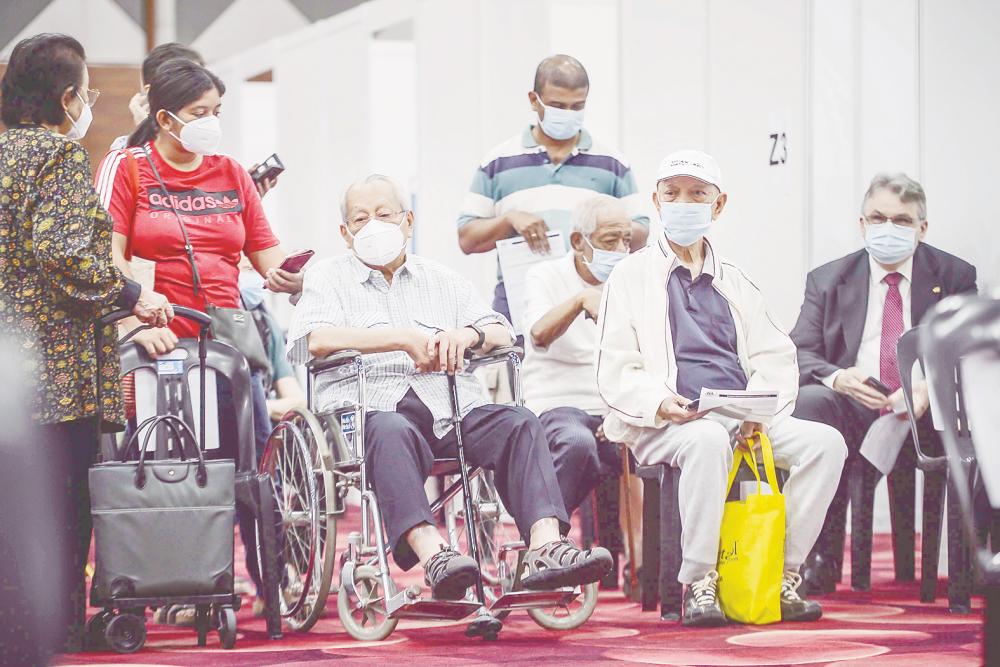AS we celebrate World Heart Day (Sept 29) and International Day of Older Persons (Oct 1), I would like to highlight the importance of preventing influenza, particularly among older adults and those with heart diseases. These groups face heightened risks, especially since influenza can trigger severe complications, including heart attacks.
Moreover, there is significant overlap among these high-risk groups. For instance, influenza can trigger an individual’s first heart attack. Among adults over 40 years old, published data recorded a tenfold increase in first heart attack rates among patients who had contracted influenza.
Meanwhile, many of my older patients are accompanied by their adult children, who have a sincere desire to keep their parents safe from harm, especially those who are frail and in poor health. This often involves asking them to limit their activities to prevent illness or injury.
Despite their best intentions, however, staying safe should not come at the expense of living a full life.
In your golden years, being surrounded by loved ones and engaging in activities that bring you joy, whether it is line dancing, travelling or celebrating special moments with friends, truly enriches your life.
After decades of hard work and raising a family, embracing this vibrant phase as a retiree, mentor, parent, grandparent and cherished friend is what quality of life is all about.
I deeply believe in the importance of older adults staying active and enjoying a fulfilling life, free from the burdens of illness.
One vital yet often overlooked aspect of health protection is the annual influenza vaccination. This vaccine is not just a precaution, it is a key safeguard against the many risks and complications that can arise from influenza, helping to ensure you can continue to embrace life’s joyful moments.
As we age, our immune systems naturally weaken, making us more susceptible to infectious diseases like influenza.
Research indicates that a staggering 90% of influenza-related deaths occur in individuals aged 65 and older. The risk of dying from influenza is five times greater for those with heart disease and 20 times higher for individuals with heart and pulmonary conditions. Even for those who recover, the consequences can be severe, often leading to loss of function or disability.
The combination of ageing, chronic health issues and influenza places older adults at a higher risk of serious illnesses, complications and extended hospital stays.
It has also been noted that more major cardiovascular events occur following influenza outbreaks.
Thankfully, there is also comprehensive research that highlights the protective benefits of influenza vaccines, which can help to reduce the risk of death by 48% among older persons.
A recent study also found a 41% reduction in cardiovascular mortality among those who received the influenza vaccination within 72 hours of a coronary procedure or hospitalisation.
As we approach the season of year-end travels and festive gatherings, let us be mindful that the influenza virus is easily passed from person to person, especially among the same household and in crowded conditions, which increase potential exposure and spread of the virus.
With Malaysia now officially an ageing nation, with 2.5 million (7.4%) individuals aged 65 and older, we urgently need greater awareness on the elevated risk faced by older persons, so that we can make influenza vaccinations a priority for this vulnerable group.
I encourage all older adults to value your health and recognise its importance. A single influenza infection can have serious and irreversible consequences.
Prioritise your well-being by getting your influenza vaccine. It is a vital step to help you stay healthy and fully enjoy all the wonderful moments life has to offer.
Dr Jeremy Quah is a cardiologist at the
National Heart Institute.
Comments: letters@thesundaily.com









